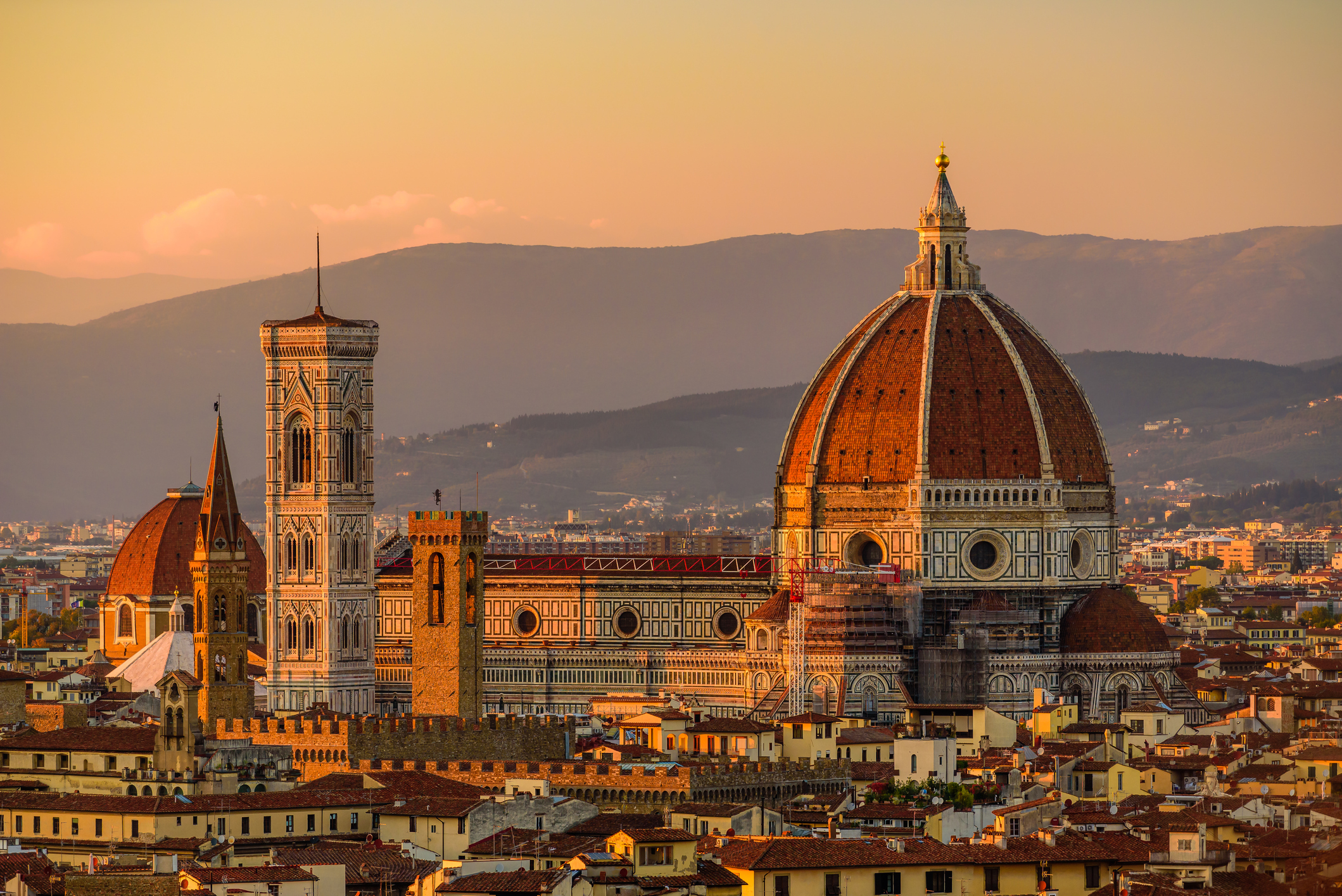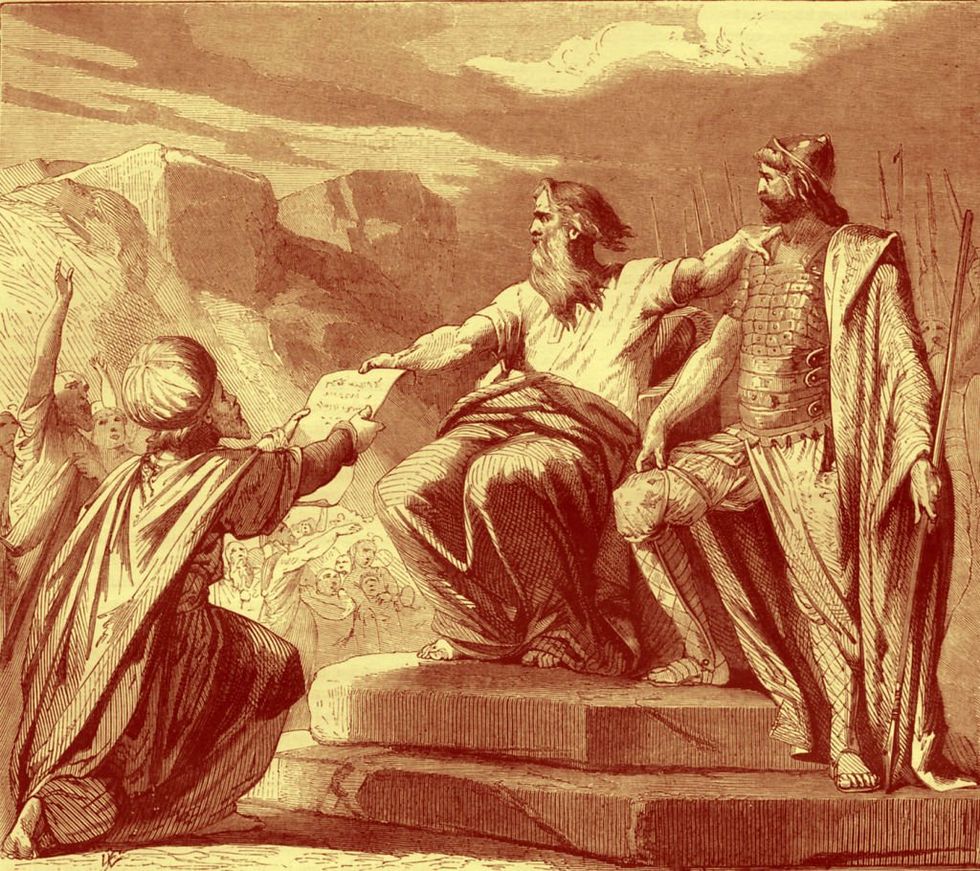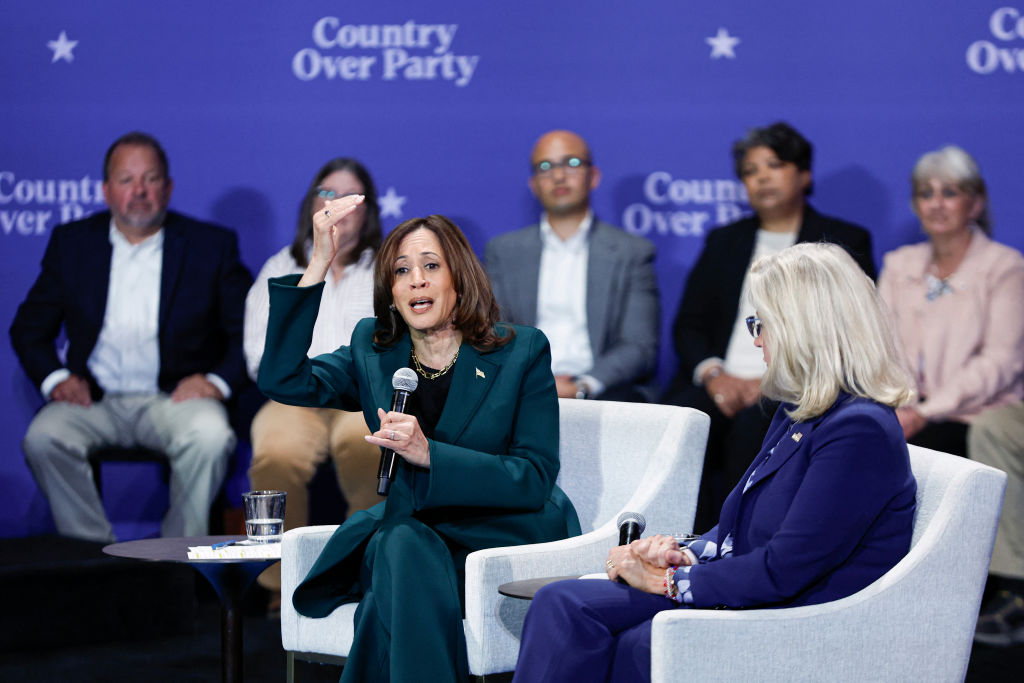Dante And The Redemption Of Politics, Part III: Distinguishing Between True And False Freedom
The following is part three of a four-part series taken from a speech delivered by Michael Knowles at the National Intercollegiate Studies Institute Honors Conference. * * * So does this mean Dante hates freedom? Nothing could be further from the truth. We hear in “Paradiso” V that “the greatest gift that ever in his bountifulness God gave ...

The following is part three of a four-part series taken from a speech delivered by Michael Knowles at the National Intercollegiate Studies Institute Honors Conference.
* * *
So does this mean Dante hates freedom? Nothing could be further from the truth. We hear in “Paradiso” V that “the greatest gift that ever in his bountifulness God gave in creating, and the most conformed to his goodness, the one that is most prized, was the freedom of the will, with which the creatures with intelligence, all of them and only they, were and are endowed.” Dante tells us in “Monarchia” that “the human race is in its ideal state when it is completely free” and that “the first principle of our freedom is free will, which many people talk about but few understand.”
Here Dante seems to be speaking directly into our own time, when so many people are confused about the true meaning of “freedom.”
Dante distinguishes between true and false freedom: “If judgment controls desire completely and is in no way pre-empted by it, it is free; but if judgment is in any way at all pre-empted and thus controlled by desire, it cannot be free, because it does not act under its own power, but is dragged along in the power of something else.” Lord Acton summarizes this view in the pithy statement that freedom is not the ability to do what we wish but the right to do what we ought.
Dante loves freedom. And it is because he loves freedom that he demands universal monarchy. Because, as he tells us in “Monarchia,” “The activity proper to mankind considered as a whole is constantly to actualize the full intellectual potential of humanity, primarily through thought and secondarily through action (as a function and extension of thought).” He adds that “mankind most readily attends to this activity … in the calm or tranquility of peace.” Therefore, “universal peace is the best of those things which are ordained for our human happiness.” And the only way to get universal peace is through a universal ruler.
But then doesn’t this therefore imply a merger of Church and State under one single ruler? Not for Dante. But Dante’s enemy Pope Boniface VIII thought it did, as the pope argued in 1302 in his papal bull “Unam Sanctam.”
Boniface argued that all power on earth lies ultimately with the pope — that even the emperor is subordinate to the pope. To defend his claim, Boniface made a couple of dubious scriptural arguments. Boniface also relied on the Donation of Constantine — a document later proven to be a forgery — in which the Emperor purportedly transferred authority over the western Roman Empire to the pope.
Dante says no. Even if Boniface’s questionable readings of scripture were accurate, even if Constantine had really attempted to transfer political authority to the pope, nevertheless it would not be possible. Because on earth, everything has limits. Even the keys to the Kingdom of Heaven, which our Lord gives to St. Peter — the power “to loose and to bind” — cannot be absolute because Peter could not do things that God himself cannot do.
Peter could, for instance, absolve an unrepentant sinner. He could not “loosen a wife from her husband and bind her to another while the first was still alive.” There are limits not only to the power of the emperor but also of the pope. Those limits derive from the nature of their respective offices, and the distinction between the offices derives from the fact that man himself has two natures: corruptible body and incorruptible mind. Mankind therefore, having two natures, necessarily has two ends: happiness in this life and happiness in eternity. The political order — the Empire — is meant to serve man’s temporal happiness; the spiritual order — the Church — should conduce to man’s eternal happiness.
WATCH: The Michael Knowles Show
And yet Dante does not call, as later political thinkers will, for a “firm separation of church and state.” On the contrary, he concludes by warning that his argument “should not be taken so literally as to mean that the Roman Prince is not in some sense subject to the Roman Pontiff, since this earthly happiness is in some sense ordered towards immortal happiness. Let Caesar therefore show that reverence towards Peter which a firstborn son should show his father, so that, illumined by the light of paternal grace, he may the more effectively light up the world, over which he has been placed by Him alone who is ruler over all things spiritual and temporal.”
The pope and the emperor have distinct realms of action. But we cannot totally separate the temporal and the spiritual just as we cannot separate the literal from the allegorical or the particular from the universal.
Now, having digressed for all that context, let’s move on to the pre-political canto, Canto V of “Inferno.” Here Dante encounters Francesca da Rimini, who had an affair with her brother-in-law Paolo, both of whom are killed by her jilted husband when he discovers them.
Paolo and Francesca fall in love, she tells us, while reading. They read the story of Lancelot and Guinevere. And here Dante makes an important point about language. When read in Italian, it is most important to listen to the language.
Amor, ch’al cor gentil ratto s’apprende,
prese costui de la bella persona
che mi fu tolta; e ‘l modo ancor m’offende.
Amor, ch’a nullo amato amar perdona,
mi prese del costui piacer sì forte,
che, come vedi, ancor non m’abbandona.
Amor condusse noi ad una morte.
Caina attende chi a vita ci spense”.
Queste parole da lor ci fuor porte.
“Love, which is quickly kindled in the gentle heart,” “love, which does not pardon any beloved from loving,” “love led us to one death.” That last phrase: “amor condusse noi ad una morte.” “Amor” — love — is precisely in the middle of “una morte” — “one death.”
It’s untranslatable. It is possible to gist in translation, but it only really works in Italian. Dante is showing, as he tells explicitly in his essay on language, “De Vulgari Eloquentia,” that particular languages are appropriate for particular works and particular writers. Not only do different circumstances call for different forms of language — the high grammatica of Latin versus the vulgar vernacular — but writers have a special obligation to their own native vernaculars simply by virtue of those vernaculars’ being their own. Dante writes in “The Banquet” of “the perpetual shame and mortification of the wicked men of Italy who praise the vernacular of others and disparage their own.”
Dante condemns his own teacher Brunetto Latini in part for betraying his vernacular. The point is that language is particular. There’s an old expression, “traduttore, traditore” — the translator is a traitor. Individual experiences are not interchangeable.
This is more evident in Canto XXXI of Inferno when Dante meets Nimrod, who builds the Tower of Babel. When Dante meets him, Nimrod says, “Raphèl maì amècche zabì almì,” which is untranslatable, not because of some pun, but more basically because no one knows what language it is. It seems the phrase is nonsense. Which in itself is meaningful.
Observing the Babel builders, the Lord says, “Behold, they are one people, and they have all one language; and this is only the beginning of what they will do; and nothing that they propose to do will now be impossible for them.” So he confused their language and scattered them over the face of the earth.
The combination of political and linguistic unity would have unleashed invincible evil on the world. So God disrupted — temporarily — their political unity and permanently severed their linguistic unity. Now we see a chasm between what is said and what is understood — a chasm which is itself merely an exaggeration of the gap that appeared between word and meaning at the Fall.
Nimrod attempted to short-circuit the particularity of politics and history. He transgressed the limits placed on man at the Fall. We learn more about this fact in “Paradiso” XXVI, when Dante meets Adam, who explains that ”the tasting of the tree in itself” did not cause “so long an exile, but only going beyond the sign.” A crucial word: “sign.” Adam in disobedience figuratively “goes beyond the sign,” and as a result there emerges a distance between literal signs — that is, words — and the meanings that they signify.
In “Paradiso” XXVI, Adam corrects Dante’s earlier belief, articulated in “De Vulgari Eloquentia,” that Hebrew alone survived the confusion of languages at Babel — that Hebrew is in fact the original language created by God — “so that our redeemer, who was to descend from them (in so far as He was human), should not speak the language of confusion, but that of grace.”
Adam says no. “The language that I spoke was all extinct before Nimrod’s people became intent on the unfinishable work.” This is because “no rational effect, because of human preference, which changes following the heavens, has ever been enduring.” Nothing is immune from history. God himself enters into history, and the Word himself speaks a language that is contingent, particular, and constantly changing.
Even the names we call God change: first it was “I,” then “El,” and so on. “This is necessary,” Adam explains, “for the usage of mortals is like a leaf on the branch, which departs and another comes.” The usage of mortals changes because, as Dante writes in “De Vulgari Eloquentia,” “Nothing can be conveyed from one reasoning mind to another except by means perceptible to the sense.” And percepts are always changing. God does not change, but everything else does, including the names we call him.
This is one reason Dante chose to write the “Comedy” in the vernacular. For some of his minor works, he chose the high grammatica of Latin. For his magnum opus, he chose the low vernacular. To go up, we must go down.
* * *
RELATED: Dante And The Redemption Of Politics, Part I: Understanding Dante’s Vision
RELATED: Dante And The Redemption Of Politics, Part II: The Pilgrim’s Journey
Originally Published at Daily Wire, World Net Daily, or The Blaze
What's Your Reaction?
































































































